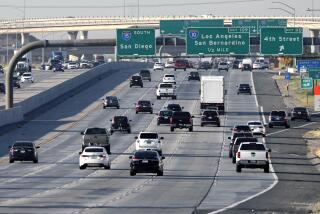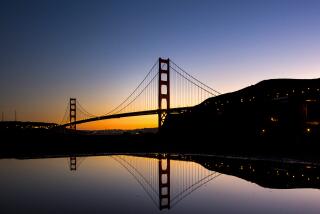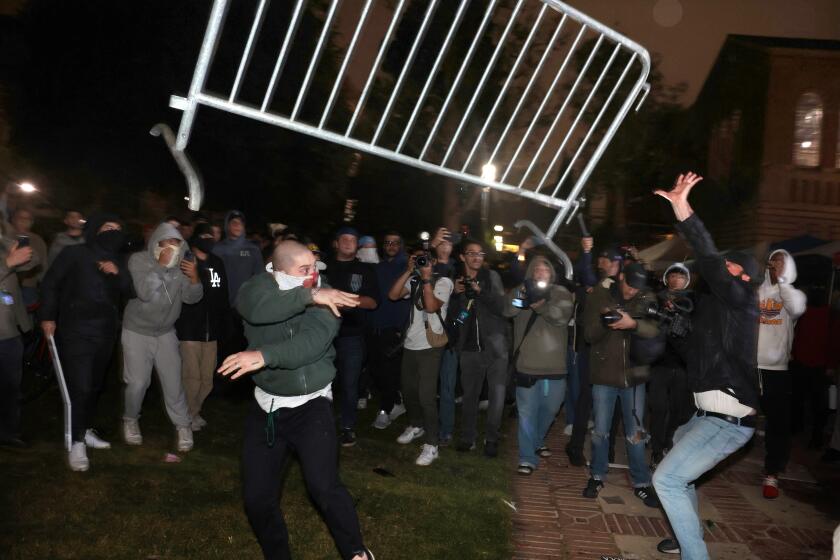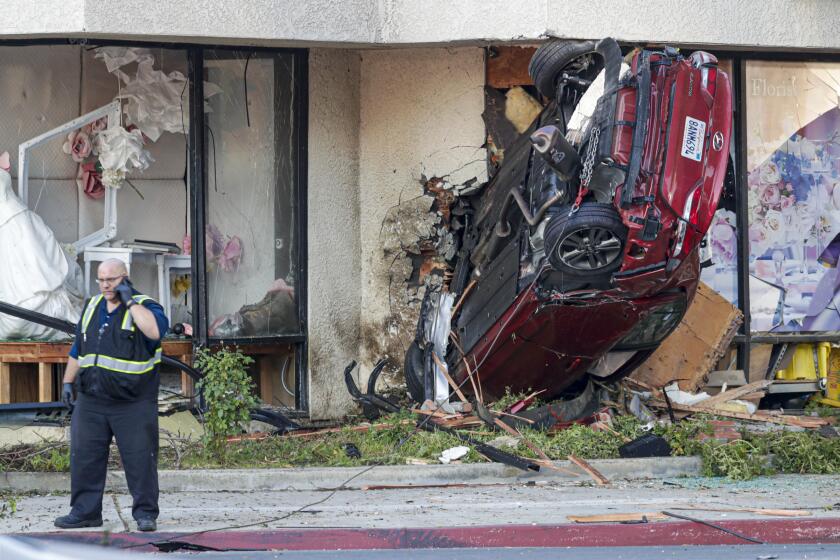Editorial: Brown’s compromise is California’s best bet to fix roads
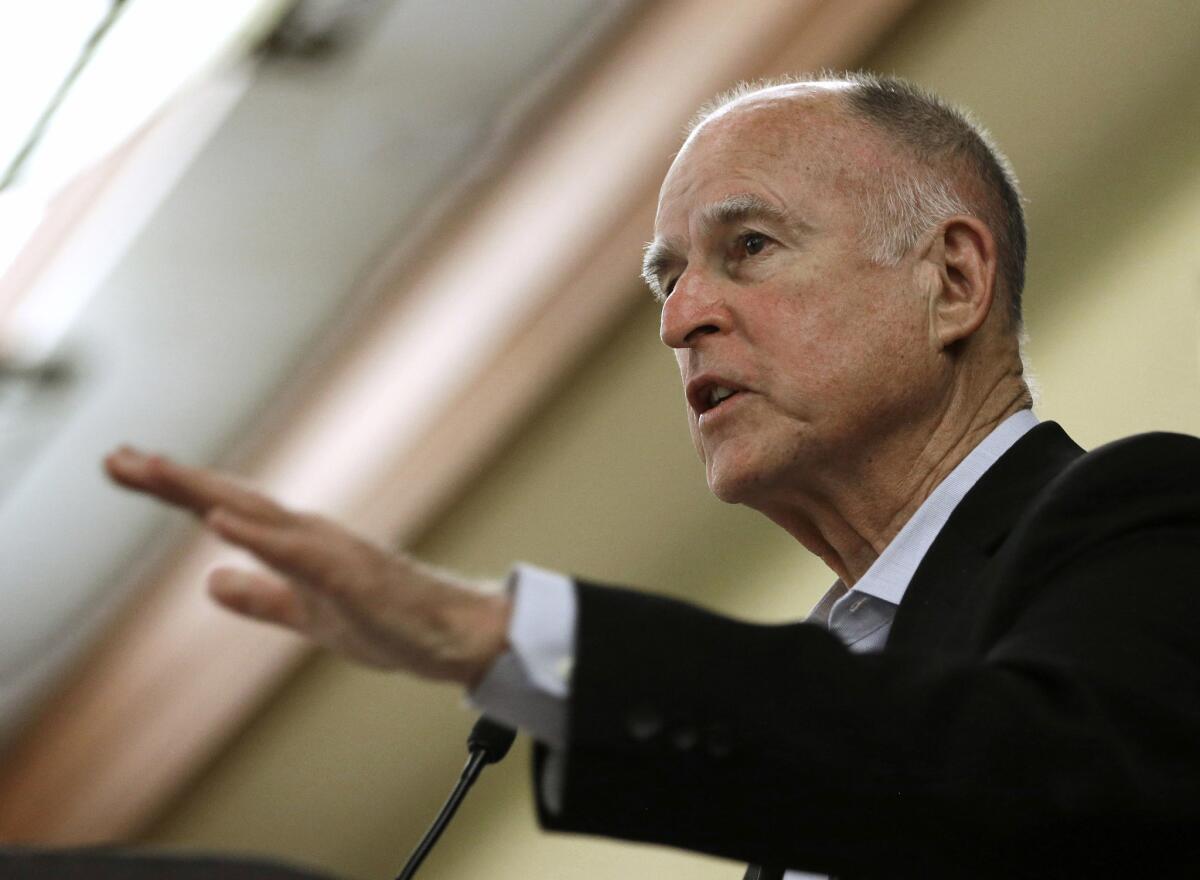
California Gov. Jerry Brown addresses the California State Association of Counties Legislative Conference in Sacramento, Calif. on May 27.
After spending months on the sidelines and “above the fray” while legislators debated how to pay for California’s massive backlog of road repairs, Gov. Jerry Brown has finally offered a reasonable compromise that raises fuel taxes and vehicle fees while tapping carbon pollution fees to fund highway, street, bridge and public transit improvements. Legislators ought to support it and start reinvesting in critical state infrastructure.
There is bipartisan agreement on the need to fix the roads. Caltrans has deferred $59 billion worth of highway and bridge repairs. Cities and counties face an even bigger bill, needing $78 billion to return local streets to good condition. And the cost of fixing the roadways increases each year as pavement deteriorates and simple repairs turn into more expensive reconstruction projects. That’s why Brown called a special session in June to focus lawmakers’ attention on how to fund the work.
Republican leaders, however, have predictably opposed tax increases. Needing some GOP votes to pass the funding package, Brown has pitched a plan that embraces the leaders’ calls for more public-private partnerships and cost-cutting on transportation projects while generating $3.6 billion a year in new revenue. That’s far less than the $6 billion transportation advocates say is needed, but it would still be the largest infusion of transportation funding in years.
Brown would raise the gasoline excise tax by six cents a gallon and the diesel excise tax by 11 cents a gallon, and have both rise with inflation in the future — meaning that lawmakers could avoid the perennial fights over whether to raise the gas tax. He would also impose a new $65-per-vehicle highway user fee that would apply to all vehicles, most notably the electric cars that avoid the gas tax by using less fuel. Brown has also proposed taking $500 million from the cap-and-trade program — which generated $2.2 billion this year from fees on carbon emissions — to pay for public transit investments, such as electric buses and cleaner rail cars, and to help make streets more bicycle- and pedestrian-friendly. Republicans want to spend cap-and-trade monies on road repairs, but Brown’s plan is a more appropriate use of fees that are supposed to fund reductions in greenhouse gas emissions.
Brown’s proposal is not perfect. The combination of higher gas taxes and a flat highway user fee will hit the poorest drivers hardest. And it banks on $100 million in savings through “efficiencies” and cost-cutting at Caltrans, which may or may not materialize. But the basic premise of the governor’s plan is sound, considering the long-standing bipartisan support in California for raising gas taxes and user fees to fund road repairs. Republicans can’t kick the can down the potholed road. It’s time to start rebuilding.
Follow the Opinion section on Twitter @latimesopinion and Facebook
More to Read
A cure for the common opinion
Get thought-provoking perspectives with our weekly newsletter.
You may occasionally receive promotional content from the Los Angeles Times.

